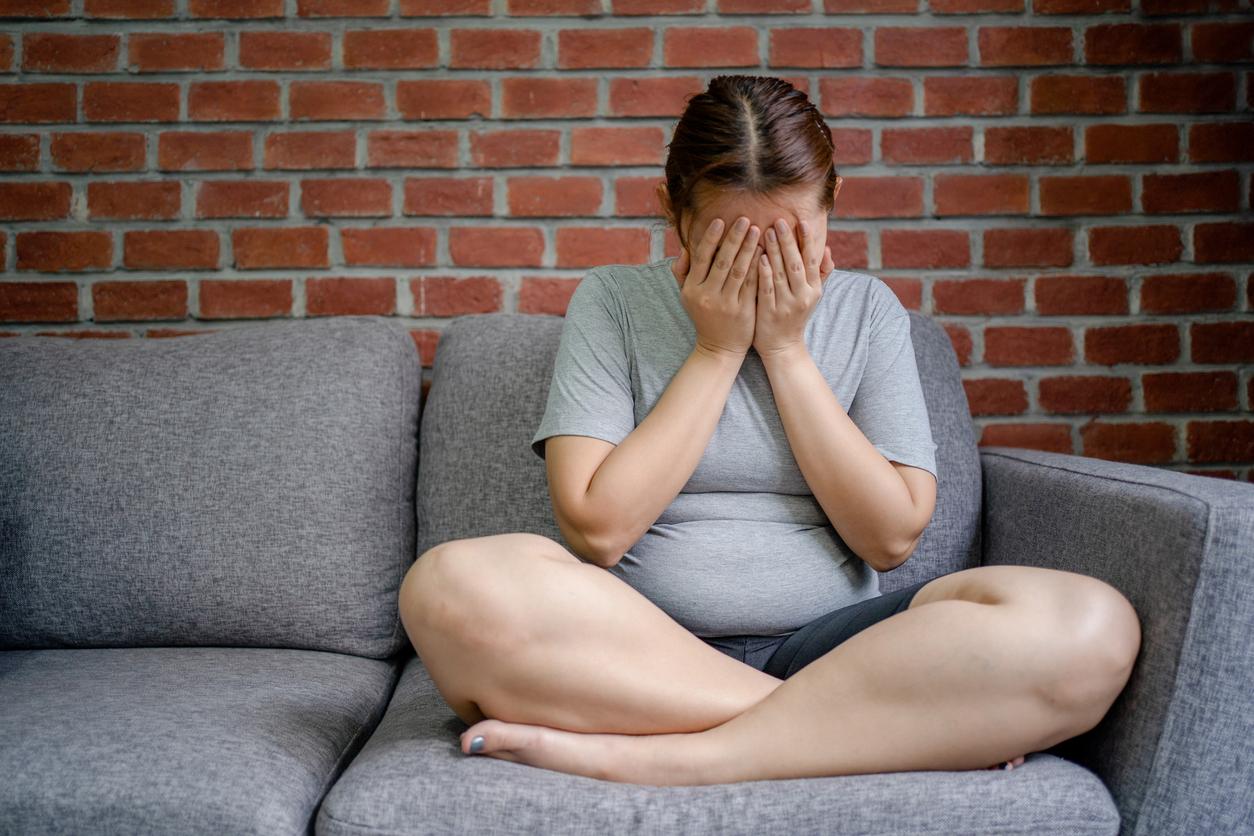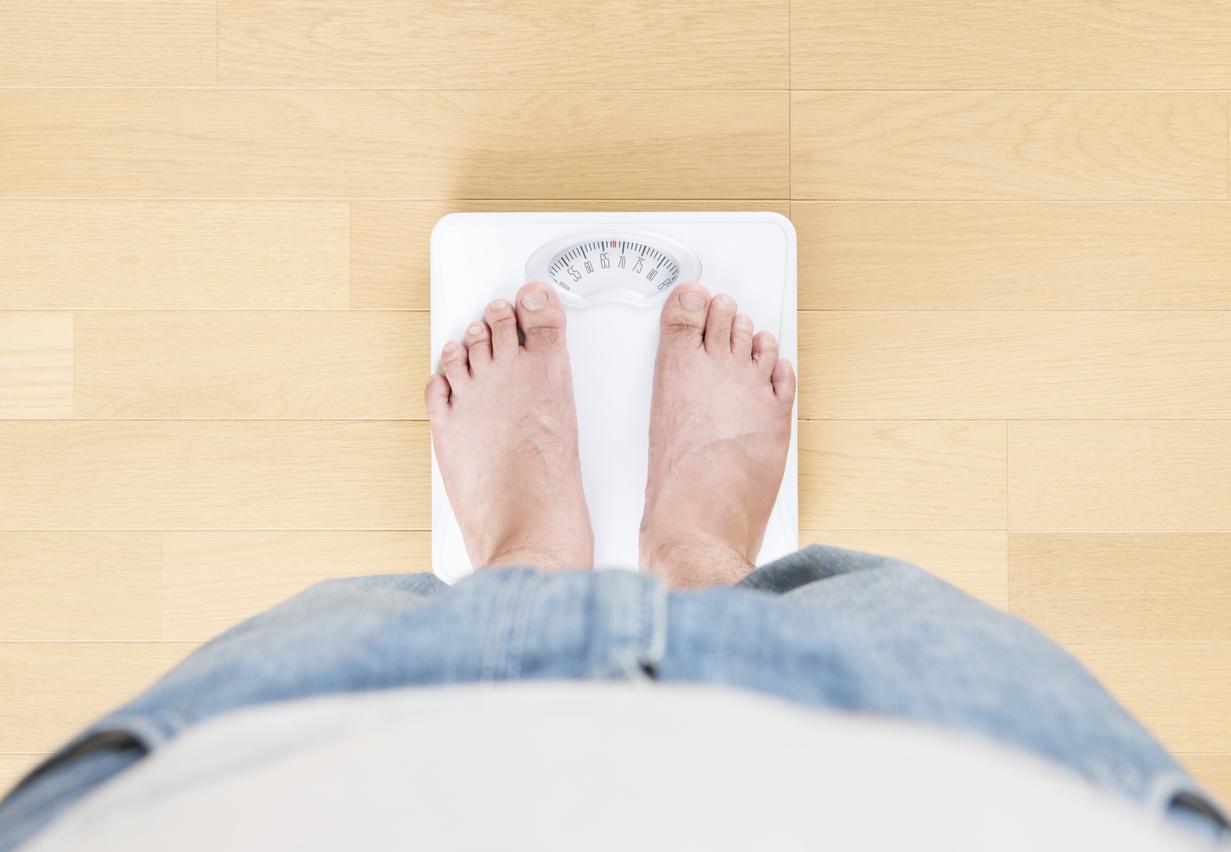In obese or overweight people, an increase in depressive symptoms is associated with weight gain measured one month later.

- In the study, overweight people gained an average of 52 g for every point more on their usual depressive symptoms score.
- As for obese patients, they gained 71 g more.
- Researchers found no evidence that increased stress or anxiety was linked to weight changes.
Several research studies have suggested a link between weight and poor mental health, with each potentially influencing the other. However, “It is not clear how small fluctuations in mental well-being in patients impact body weight over short periods, for example over the next month,” indicated scientists from the University of Cambridge (England). So, they decided to carry out a study to analyze this phenomenon.
For the purposes of the work, the team examined data from 2,133 adults living in the United Kingdom, who had participated in a Covid-19 cohort. Participants completed online questionnaires about their mental health and weight every month for nine months during the pandemic. Specific questions were used to assess symptoms of depression, anxiety and stress. A higher score indicated greater severity. “The maximum possible scores being 24 for depression, 21 for anxiety and 40 for stress,” the researchers said. They then used a statistical model to determine whether having poorer mental health than usual was linked to changes in weight one month later.
An increase in depressive symptoms favored a weight gain of 45 g
According to the results, published in the journal Plos One, the variation in depressive symptoms made it possible to predict the future weight of the volunteers. In detail, for each increase of one notch in the score for depressive symptoms, the weight one month later increased by 45 g. “This may not seem like much, but it means, for example, that in a person whose depressive symptoms score increased from 5 to 10 (i.e. from ‘mild’ to ‘moderate’), this would correspond to an average weight gain of 225g (0.225kg)”reported the authors.
This effect was only observed in people who were overweight, i.e. with a BMI between 25 and 29.9 kg/m2, or obese, i.e. with a BMI greater than 30 kg/m2. Overweight participants gained an average of 52 g for each point more on their usual depressive symptoms score, and obese people gained 71 g more. The effect was not noted in adults with a so-called “healthy” weight. “We found no evidence of other interactions, associations of stress and anxiety with weight,” the scientists specified.
Overweight, obesity: “This phenomenon could lead to further deterioration of health”
According to lead author Dr. Julia Mueller, the study suggests that adults who are overweight or obese are more vulnerable to weight gain in response to symptoms of depression. “People with a high BMI are already at greater risk for other health problems, so this phenomenon could lead to further deterioration in their health. Monitoring and treating depression in these patients could help prevent further depression. extra weight and be beneficial for both their mental and physical health.”

















